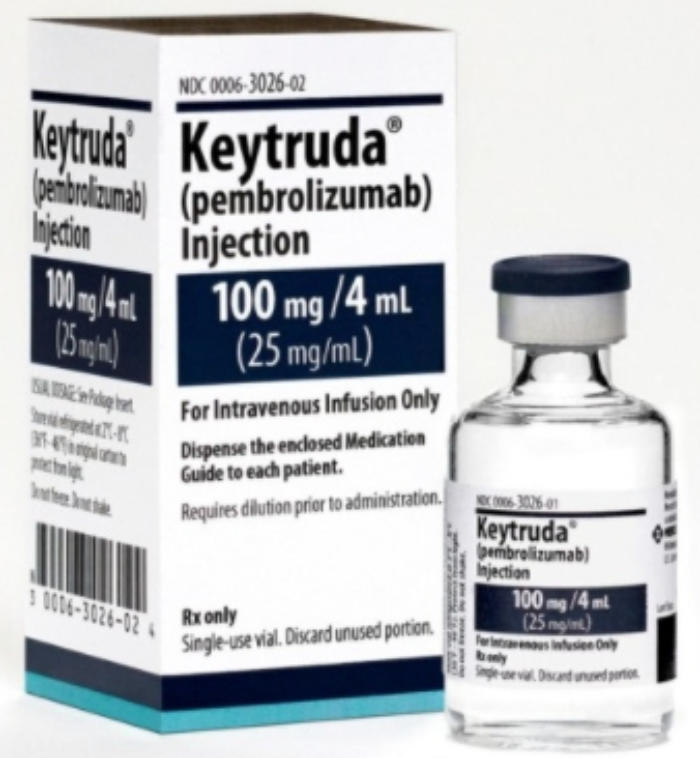Unfunded immunotherapy drug, Keytruda, has beaten standard chemotherapy in a head to head test to delay cancer progression showing its viability to be used as a first-line treatment for MSI-H bowel cancer patients around the world.
Merck Sharp & Dohme Global (MSDG) in the US, released data yesterday from their phase 3 Keynote-177 trial which showed the immunotherapy treatment compared favourably to chemotherapy as a first-line treatment option in patients with a particular genetic profile. Before now, it's used has been recommended only after chemotherapy.
The treatments were compared in a sub-group of bowel cancer patients with microsatellite instability-high (MSI-H) or mismatch deficiency Repair (dMMR) which cause high rates of mutations (also found in patients with genetic mutations of Lynch Syndrome).
These patients' cancer had either spread to other parts of the body or couldn’t be surgically removed, regardless of where it originated in the body.
Mis Match Repair System (MMR) can best be described as an OCD Mum trying to correct all the cell replications that are faulty. If they are not repaired, the mutations build up to form a gateway to cancer.
MSDG said this was the first phase 3 trial to successfully pit a single-agent therapy against the standard of care—a combination of Roche’s Avastin and a chemo regimen known as mFOLFOX6.
Based on the top-line results, Keytruda achieved “clinically meaningful” improvement in progression-free survival (PFS) compared to standard therapy based on either the mFOLFOX6 or FOLFIRI chemo regimens, with or without Roche’s Avastin (bevacizumab) or Eli Lilly’s Erbitux (cetuximab).
Bowel Cancer Foundation Trust CEO, Georgina Mason, says this means Pharmac, New Zealand's Crown Entity that decides on behalf of Health Boards which medicines are subsidised for use in the public hospitals, should be one step closer to making a decision to fund this drug.
"They now have the trial data results they need to make a decision on whether to include Keytruda as a funded drug for bowel cancer patients in New Zealand who have these mutations," she said.
"I would expect the next stage would be a submission from the New Zealand office of Merck Sharpe & Dohme to push this forward."
MSI-H and dMMR mutations are seen across a wide range of tumour types but are most commonly seen in colorectal with Lynch Syndrome patients, endometrial and gastrointestinal cancers, occurring in around 10-15% of all colorectal tumours.
Advocates of the Lynch Syndrome New Zealand patient group were encouraged by the news with a spokesperson saying,
"The data shows that Keytruda improves progression-free survival (PFS) over chemotherapy, which is very encouraging news because it indicates that patients taking the Keytruda remain cancer-free longer than those being treated with chemotherapy."
Lynch Syndrome NZ is working alongside Bowel Cancer Foundation Trust to help lobby Pharmac to fund Keytruda for Lynch Syndrome patients and those with (MSI-H) or (dMMR) mutations.

